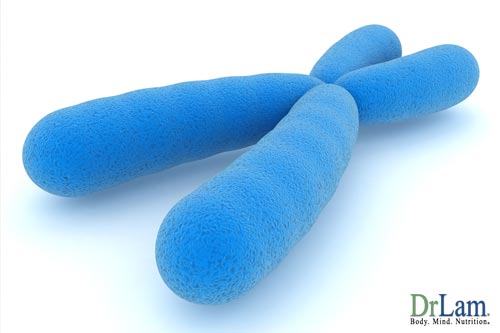 A new Dutch study involving more than 2,400 people (their age ranges from 18 to 65) has found that people who have major depressive disorders (MDD) at some point during their lives have significantly shorter telomere length and this suggests that they may be aging faster than those people in the control group who had never suffered from depression. The results from this study offer insight into the the effect of telomeres in aging. In the study, MDD diagnosis and MDD characteristics were determined by self-report questionnaires and structured psychiatric interviews.
A new Dutch study involving more than 2,400 people (their age ranges from 18 to 65) has found that people who have major depressive disorders (MDD) at some point during their lives have significantly shorter telomere length and this suggests that they may be aging faster than those people in the control group who had never suffered from depression. The results from this study offer insight into the the effect of telomeres in aging. In the study, MDD diagnosis and MDD characteristics were determined by self-report questionnaires and structured psychiatric interviews.
Specifically, the new study found that the telomeres in healthy people were about 5,540 base pairs (BP) long on average, whereas people with major depression had shorter telomeres at about 5,460 BP long. In other words, the telomeres in aging of people suffering from major depression are on average, about 80 BP shorter when compared to those people who have never suffered from depression.
A telomere is the protective cap at the end of a chromosome of a cell and they are combinations of DNA and protein that help the cells remain stable. Telomere has frequently been compared with the plastic tips on shoelaces because they prevent the chromosome ends from fraying and sticking to each other.
In human blood cells, the length of telomeres ranges from 8,000 BP at birth to 3,000 BP as people age and as low as 1,500 BP in elderly people. Each time a cell divides, an average person loses 30 to 200 BP from the ends of that cell's telomeres and this means that with each cell division, the telomeres become shorter. Cells normally can divide only about 50 to 70 times, with telomeres getting progressively shorter until eventually, they become so short that the cell can no longer divide resulting in the cell becoming inactive, die or sustain genetic damage that can then cause cancer.
The length of telomeres has long been considered a marker of a cell's age, and older people and animals have been shown to have shorter telomeres. Previous research has also found that longer telomeres are associated with fewer illnesses and longer life. In other words, telomere length has been found to be a very strong predictor of realized lifespan and that those individuals who live the longest have relatively long telomeres at all points when they are measured.
 In recent years, research into shorter telomeres in aging have also been found to be associated with a broad range of aging-related diseases, including many forms of stroke, cancer, vascular dementia, cardiovascular disease, obesity, osteoporosis and diabetes. Scientists believe that telomere shortening increases the risk of a wide variety of chronic diseases and it is no wonder that shorter telomeres have been compared with the fuse of a bomb.
In recent years, research into shorter telomeres in aging have also been found to be associated with a broad range of aging-related diseases, including many forms of stroke, cancer, vascular dementia, cardiovascular disease, obesity, osteoporosis and diabetes. Scientists believe that telomere shortening increases the risk of a wide variety of chronic diseases and it is no wonder that shorter telomeres have been compared with the fuse of a bomb.
It is important to note that the new study has found only an association (but not a cause-and-effect relationship) between depression and shorter telomeres in aging. Importantly, the researchers also found that depressed patients showed accelerated cellular aging according to a 'dose-response' gradient: those with the most severe and chronic MDD also showed the shortest telomere length.
Josine E. Verhoeven, the lead author and a doctoral researcher from the VU University Medical Centre in Amsterdam, said that his study findings suggested that psychological distress, as experienced by depressed persons, had a large, detrimental impact on the 'wear and tear' of a person's body, resulting in accelerated biological aging.
The new study findings may help explain the variety of health complaints often experienced by people with major depression. Studies have shown that people with depression are at increased risk for diseases that tend to come with aging — for example, cancer, dementia and type 2 diabetes.
One of the six key responses of the neuroendometabolic (NEM) stress responses is the neuro-affective response. Predominately in charge of this response are the gut, brain and autonomic nervous system. Much of our stressful influences begin in the brain and a range of neurotransmitters are emitted to keep our moods in a balanced state while maintaining alertness to deal with stress, and also allowing the body to rest when it can. The gut is responsible for producing a large portion of neurotransmitters, which is why it is often called the second brain.The microbiome, gut and brain axis is an essential regulator of the neurotransmitters. When the gastrointestinal tract is inflamed, it can bring about depression. It is important that this triad of systems and organs is managed well for the proper regulation of our moods.

